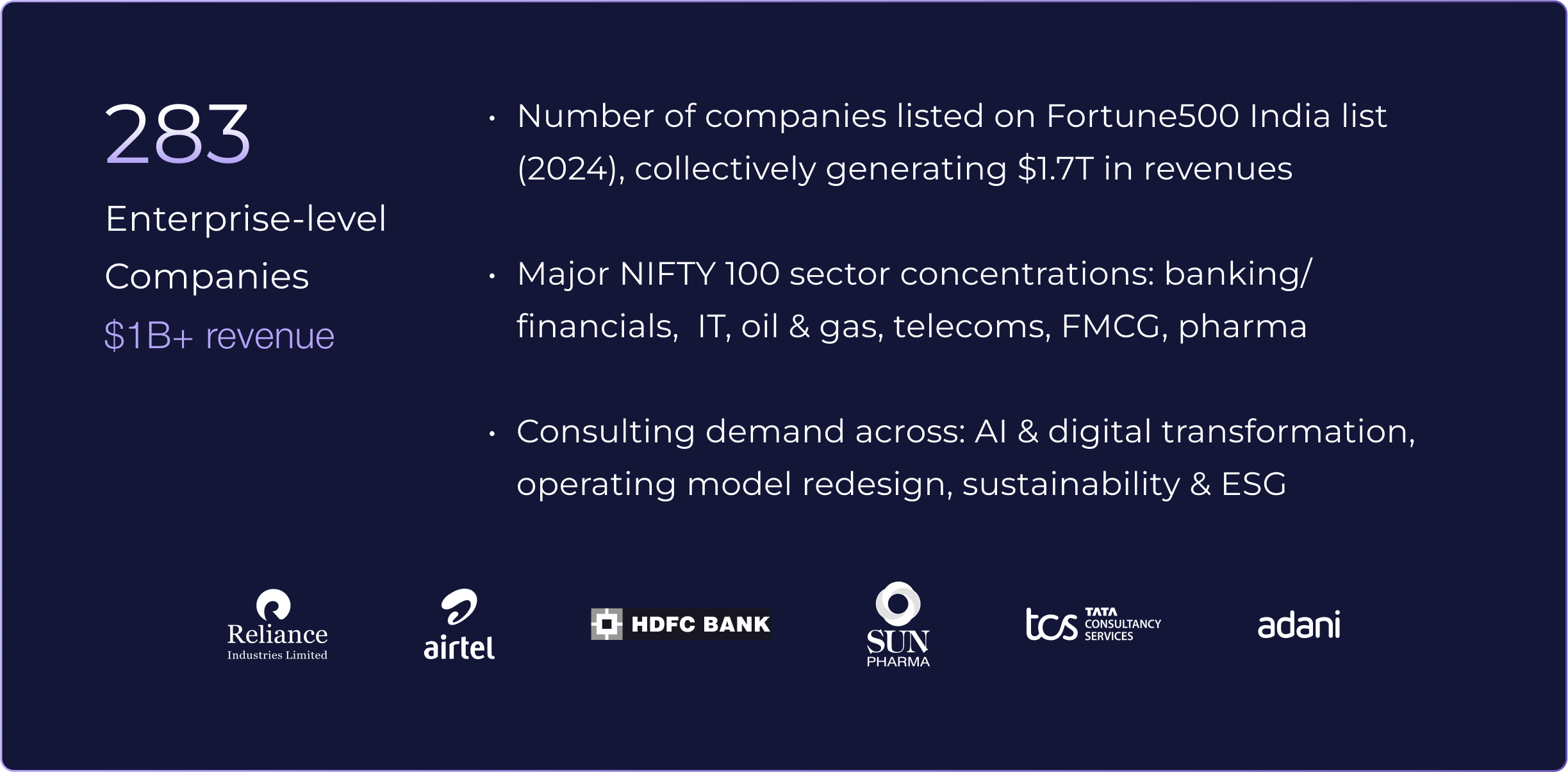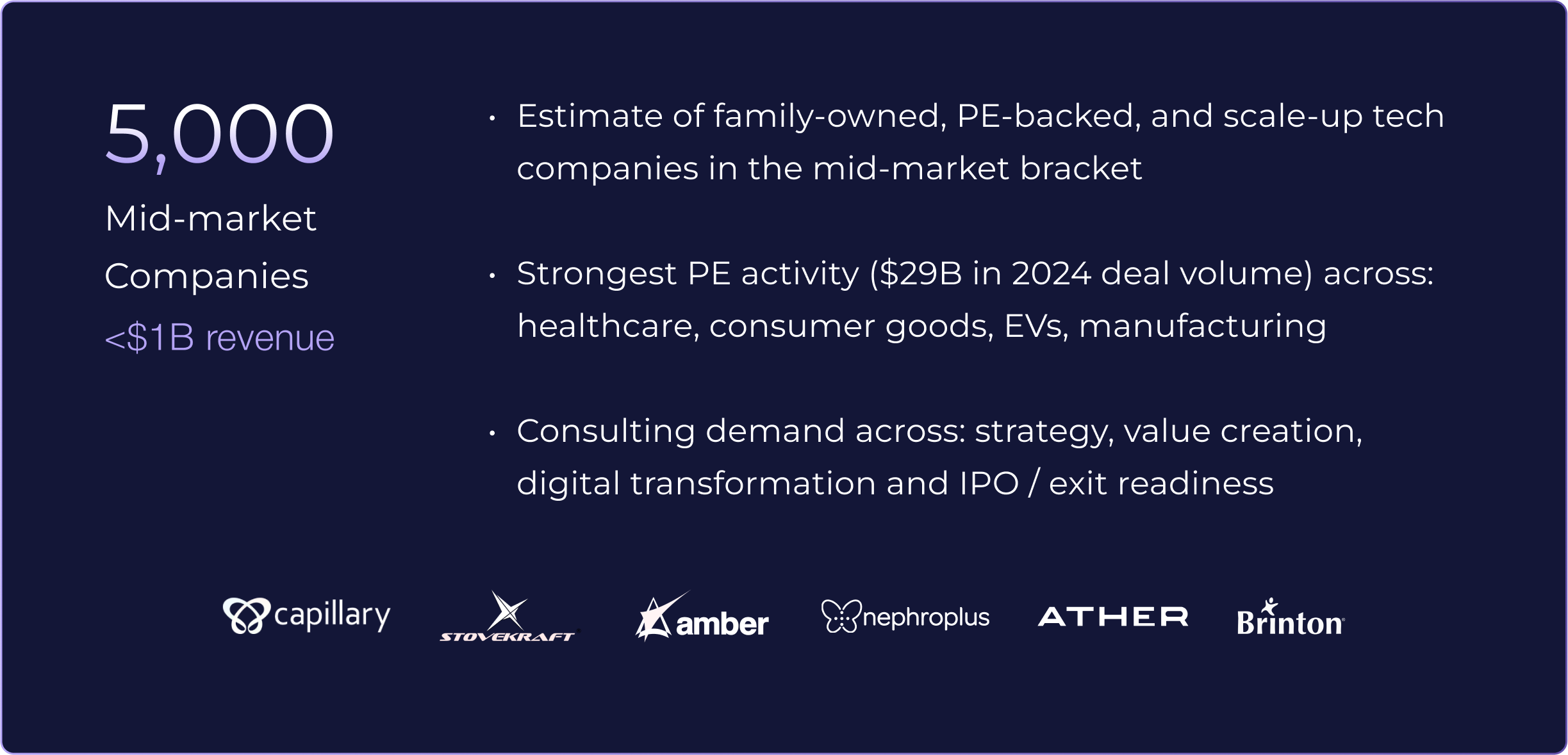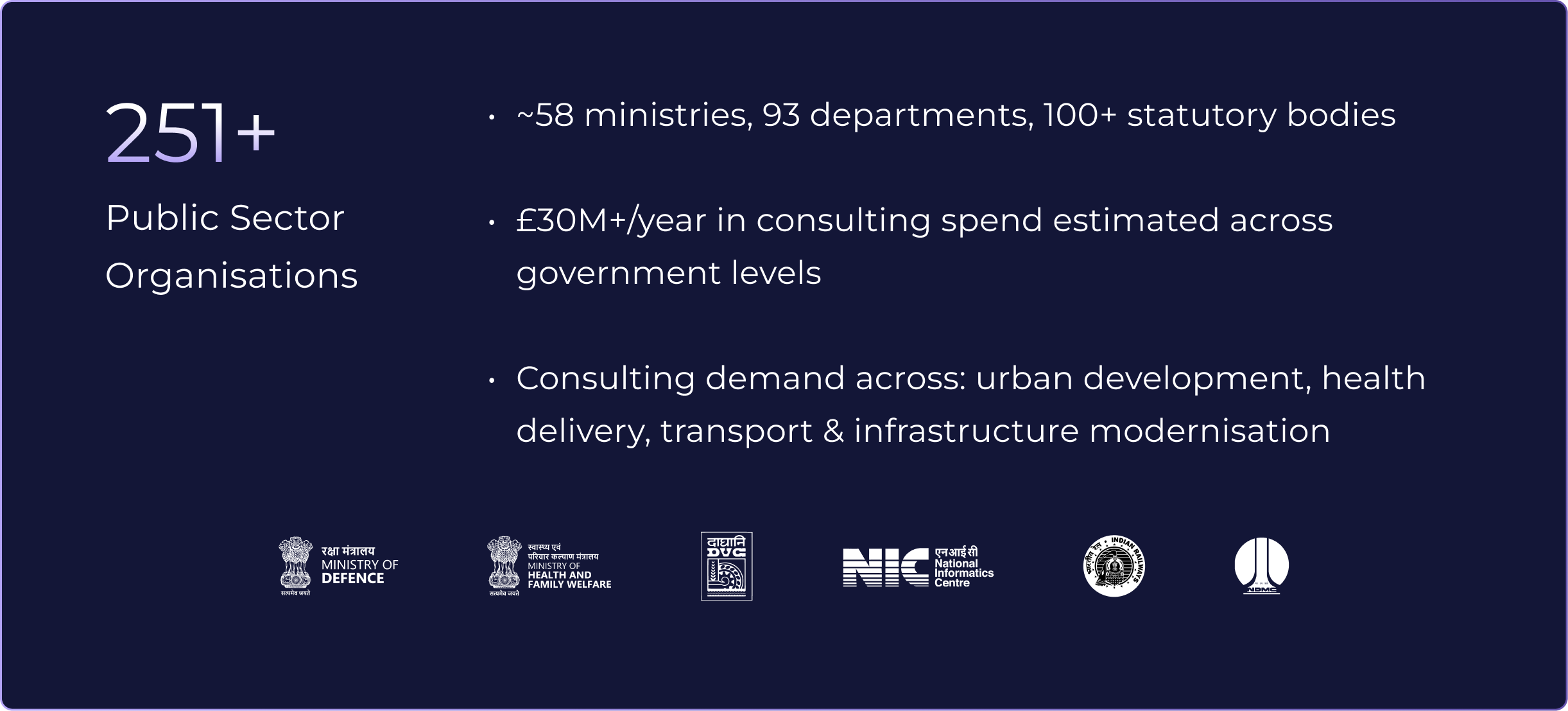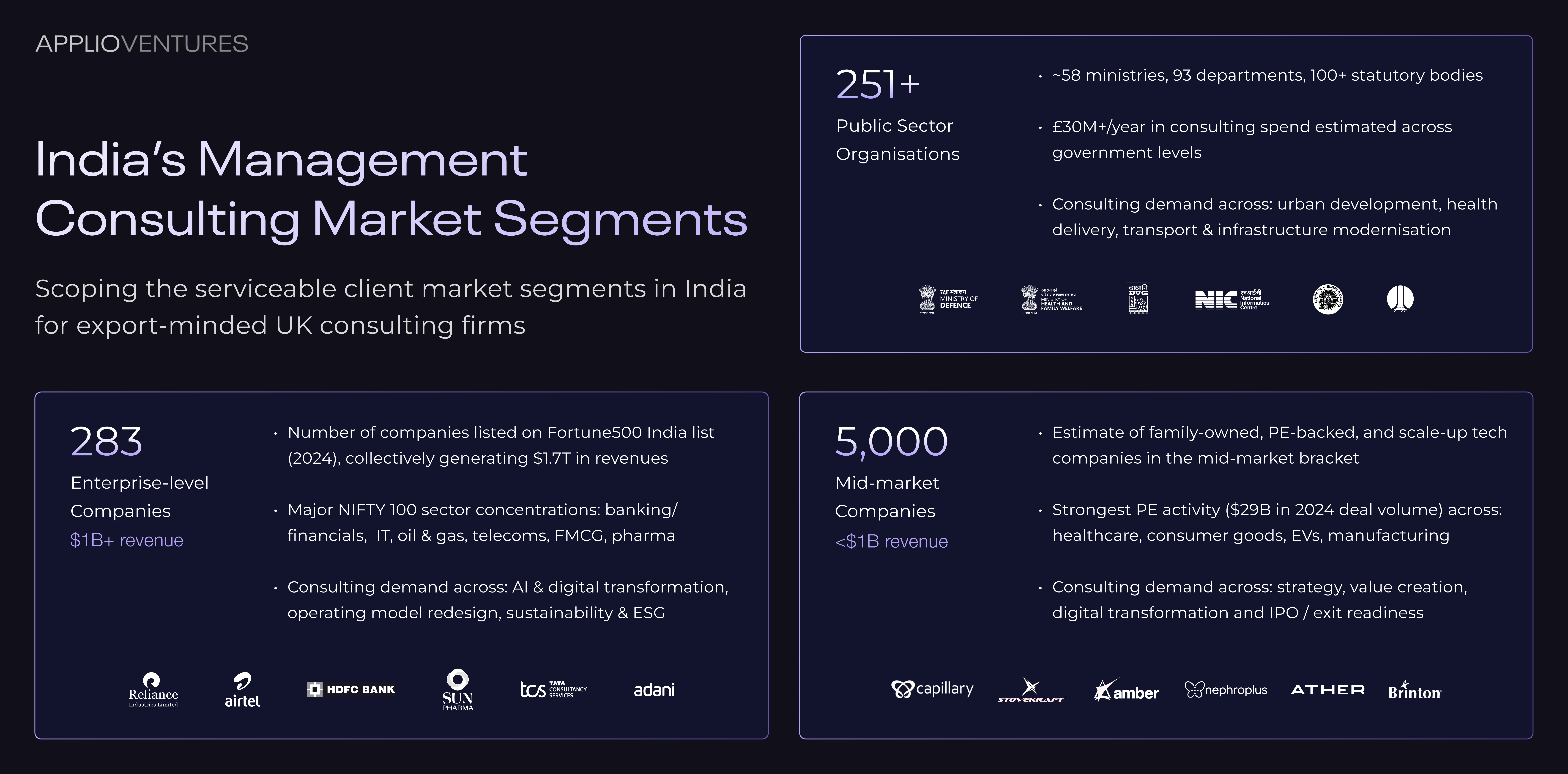India's Consulting Market Segments

India's consulting market is projected to expand from $7.8 billion in 2020 to $24 billion by 2025.
India's consulting market encompasses three distinct client segments, each presenting unique engagement dynamics and service requirements.
Executive Summary
India's consulting market, projected to expand from $7.8 billion in 2020 to $24 billion by 2025, presents substantial total addressable market opportunities across enterprise (283+ companies generating $1.7 trillion), mid-market (5,000+ firms), and public sector (250+ organisations with £30 million+ expenditure) segments. Growth can be attributed to both external and domestic changes: on the external, services growth across consulting and advisory is fuelled by digital transformation and AI, while internally, private capital inflows and regulatory evolution - across data, ESG and corporate governance - creates further advisory opportunities.
Market Segments & Demand Drivers
India's enterprise segment is large, with over 283 corporates (public and private) generating $1B+ revenue collectively representing $1.7 trillion in annual revenues. Of the publicly-listed companies within this segment (measured by the NIFTY 100), key sector concentrations include banking and financial services (34.7% weighting), IT, oil and gas, telecoms, FMCG, and pharmaceuticals.

The mid-market segment comprises over 5,000 companies with sub-$1B revenue, encompassing family-owned enterprises, private equity-backed firms, and technology scale-ups. This segment has attracted substantial private equity investment, with $29 billion in deal volume during 2024, concentrated across healthcare, consumer goods, electric vehicles, and manufacturing sectors.

Public sector organisations represent the third segment, including approximately 58 ministries, 93 departments, and over 100 statutory bodies, with estimated annual consulting expenditure exceeding £30 million across government levels.

Demand drivers vary by segment but converge around four key themes. AI and digital transformation initiatives dominate enterprise requirements, whilst mid-market firms prioritise strategy formulation, value creation programmes, digital transformation, and IPO or exit readiness. Operating model redesign represents cross-segment demand. Sustainability and ESG compliance requirements increasingly drive consulting mandates across all client categories, particularly within public sector urban development, health delivery, and transport infrastructure modernisation initiatives.
The geographic concentration of private-sector mid-market and enterprise corporates is largely found within major cities - but the country's startup ecosystems are increasingly being found outside of metropolitan centres, with Tier 2 and Tier 3 cities emerging as significant growth corridors. These cities house 51% of India's registered MSMEs and are recognised as growing startup hubs, representing untapped (but also unvalidated) consulting opportunities beyond traditional corporate markets.
Sector Priorities & Consulting Opportunities
India's consulting market, projected to expand from $7.8 billion in 2020 to $24 billion by 2025, and will be driven by the expanding regulatory and business efficiency scopes across four sectors (financial services, healthcare, and consumer goods).
India's banks & NBFI (non-banking financial institutions) face intensified regulatory scrutiny, with RBI monetary penalties more than doubling in FY24, driving a proactive and heightened demand for risk management and regulatory compliance. Additionally, SEBI has mandated significantly tightened ESG disclosure requirements, with the top 1,000 listed companies now required to submit Business Responsibility and Sustainability Reports - this comes as full value chain ESG disclosures will become mandatory from FY 2025-26. This regulatory evolution creates substantial demand for ESG strategy consulting and ESG framework development, driving the need for sustainability transformation services.
Healthcare and pharmaceuticals constitute ~4% of NIFTY 100 weighting, and represent significant growth potential across the mid-market too. With pharmaceutical exports exceeding £20 billion and large-scale private-public hospital network expansion across Tier 2 and Tier 3 cities, full-value-chain experiences in life science and healthcare consulting are increasingly demanded. Healthcare and pharmaceuticals increasingly focus on transitioning from 'inspection readiness' to 'perpetual regulatory readiness', creating demand for quality management system optimisation and regulatory compliance consulting across global markets.
Consumer goods sectors, particularly FMCG and direct-to-consumer brands, are rapidly expanding across regional and national markets. These challenger companies require comprehensive support spanning manufacturing optimisation, procurement efficiency, ESG compliance, and strategic positioning to respond to evolving consumer demands and new-age market requirements.
You can find the full infographic of India's professional services serviceable market segments below.

For further analysis on export-country economic research, professional services market landscapes and UK services trade, visit our Resources page.
Explore further

The Role of EOTs in Professional Services

The Government's 2025 Industrial Strategy on Professional Services

.svg)
